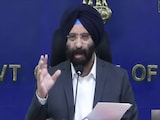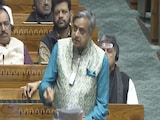The Supreme Court decision in the Adani-Hindenburg case should serve as a lesson to India's politically-driven litigators who often drag the judiciary into a fishing expedition in matters that are better left to other agencies to deal with.
Briefly, Hindenburg Research, which specialises in greenmailing and short-selling to make big bucks by targeting vulnerable companies, released a damaging report last January on the Adani Group. The report alleged that the world's (then) third wealthiest conglomerate was "pulling the largest con in corporate history". Among other things, the report (read here) alleged that the group manipulated stock prices, used shell companies to route questionable transactions, and indulged in accounting fraud to get where it did.
India's overactive public interest litigators, ever keen to see a Narendra Modi connection behind Adani's meteoric rise over the last decade, immediately moved the Supreme Court demanding that the Hindenburg report be investigated by a court-monitored agency, and not the usual regulators.
The verdict delivered today (3 January 2024) by a three-judge bench comprising Chief Justice of India DY Chandrachud, JB Pardiwala, and Manoj Mishra, made five important points.
One, there was no reason to interfere with the probes already initiated by SEBI, the market watchdog, which has completed 22 of the 24 cases. The court asked SEBI to complete the remaining two in three months, and take whatever action was needed. In doing so, the Supreme Court has sent a powerful message that it will not meddle with regulators who are already functioning per law when no evidence to the contrary was provided by the petitioners.
Two, the bench consequently ruled that there was no reason to transfer the cases from SEBI to an external agency like the Central Bureau of Investigation (CBI).
Three, the bench summarily rejected the allegation that there was a conflict of interest in the supervisory panel it had set up to monitor the SEBI investigations. The panel had six members, two former judges, AM Sapre and JP Devdhar, two former bankers (KV Kamath and OP Bhat), a tech titan (Nandan Nilekani) and an expert on regulation, Somasekhar Sundaresan.
Four, the bench also found no valid ground to reject SEBI's amended regulations for foreign portfolio investors (FPIs), where norms had actually been tightened and not loosened, as alleged by the petitioners.
Five, the judges also said that the Hindenburg report could not be taken as proof of hanky-panky. On the contrary, SEBI could act against Hindenburg in case it was found to have flouted any Indian law while doing its short-selling.
There are lessons in this for the Adani group too, the most important of which is that it must rely less on debt to fund its expansion, especially since it is focused on capital-intensive areas like infrastructure and utilities.
Last year in February, New York Stern School of Business's valuation guru, Aswath Damodaran, wrote a blog on the Hindenburg report where he rejected the idea that the group's business was a "con" even though the business was certainly over-leveraged.
In conclusion, Damodaran had this to say.
"...I find the Hindenburg shock-and-awe approach of throwing up dozens, perhaps hundreds of accusations of wrongdoings at a firm, hoping that something sticks, off-putting, since even if I am in agreement, I find myself spending time trying to separate the wheat from the chaff, the big wrongdoings from the minor distractions…. Hindenburg should be complimented for their legwork, but their critique of the Adani Group rests on a mix of serious contentions, circumstantial evidence and questionable claims….To be able to manipulate and move the market capitalisation of a company by a hundred billion, roughly the increase in value in 2022, you would expect to see huge numbers of shares being traded by these entities, and I don't see that….the questionable claims are the ones to do with earnings manipulation, since if Adani is manipulating earnings, it is not doing a very good job, reporting low margins and return."
The Supreme Court did well to nip the litigators' mischief in the bud, for the last thing one needs is a well-publicised witch-hunt against one of India's biggest conglomerates, albeit one that grew too big and too fast and with less capital than most others. If anything wrong had been done by the group, the market regulator is competent enough to investigate and take action. The court did well to uphold the legitimacy of the regulatory agencies.
(Raghavan Jagannathan is currently Editorial Director of Swarajya magazine.)
Disclaimer: These are the personal opinions of the author.















